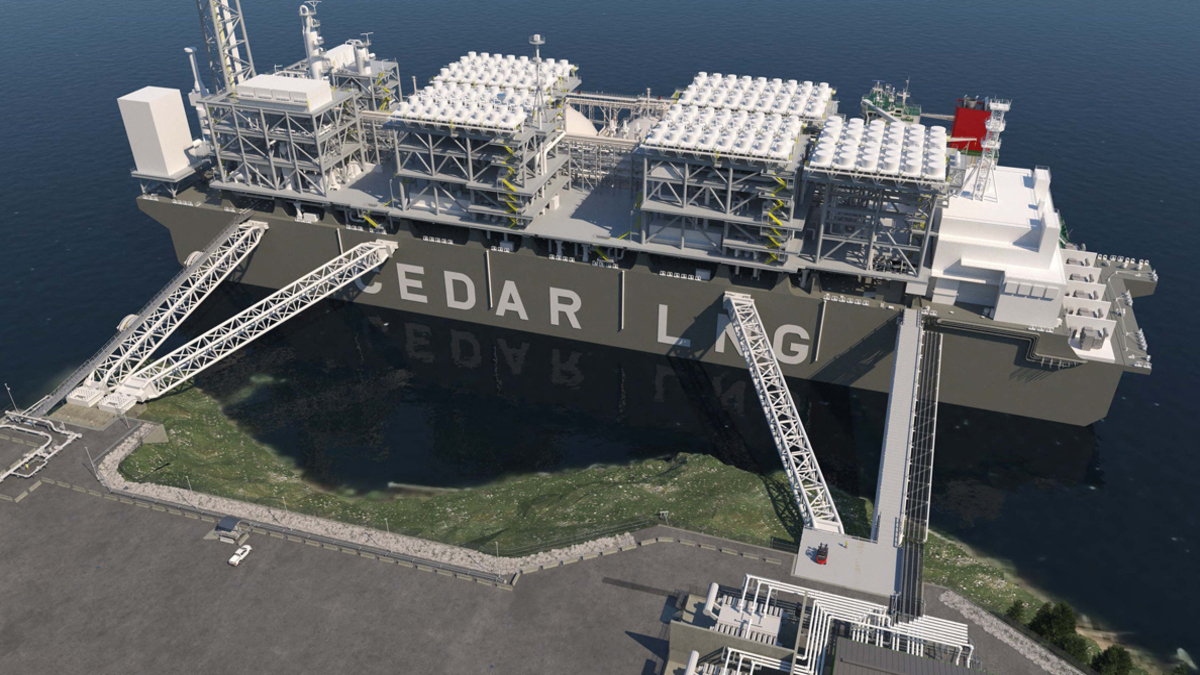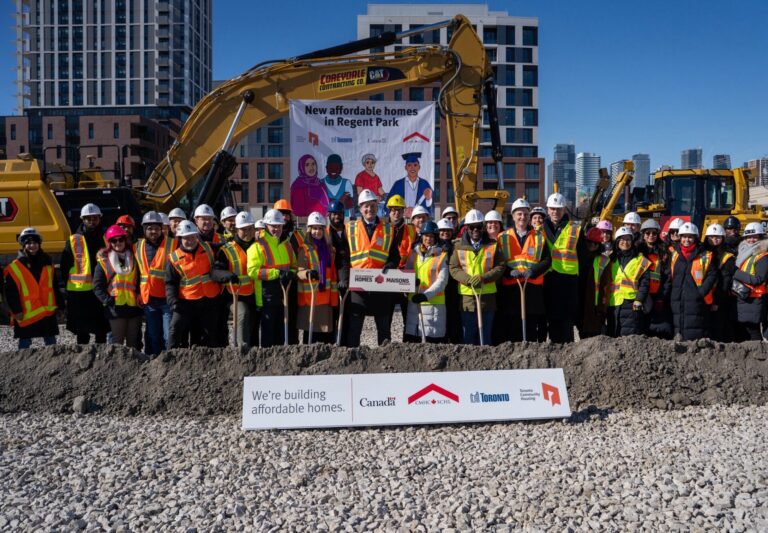With the federal budget set to be unveiled next week, a recent KPMG in Canada survey reveals near-unanimous support to take immediate action on nation-building infrastructure projects. An overwhelming 93 per cent of Canadian business leaders say Canada must move with urgency on megaproject developments, ones that will open new markets and deliver sustainable economic growth.
The findings highlight a strong consensus for parallel megaproject development among respondents across all industries and companies irrespective of size or location, and emphasize the need for government leadership, industry collaboration, and sustainable investment in energy, transportation, and digital networks.
More than nine in 10 business leaders (93 per cent) believe their companies will benefit directly from nation-building infrastructure opportunities, including supplying materials, technology and services. An equal number describe it as a “game changer” for their organization, particularly if delivered within five-to-seven years.
When asked how their companies will benefit from proposed megaprojects, their verbatim responses ranged from improved access to domestic and international markets, lower energy costs, modernized utilities that support their sustainability goals, improved remote work capabilities through better communication networks, and encouraging the adoption of advanced technologies.
“The business community is united in its call for bold and collaborative action, recognizing that there’s been an underinvestment in infrastructure for decades and Canada now has an opportunity to build for the future and catch up with the past,” says Zach Parston, a Calgary-based partner and National Infrastructure Leader, at KPMG in Canada. “Investing in infrastructure is not an optional luxury, but a fundamental requirement for securing a high quality of life, economic resilience and long-term prosperity.”
“To double non-U.S. exports over the next decade, Canada will need to invest heavily in current and new trade-enabling infrastructure that ensures businesses have reliable access to new markets. This will also require genuine collaboration and alignment and shared commitment that will unite Canada and build national pride.”
Key survey highlights:
- 93 per cent of 501 Canadian business leaders say Canada must move with urgency on nation-building projects given how long it takes to get them built
- 95 per cent say it’s vital that governments prioritize investments in trade-enabling infrastructure, of whom half (50 per cent) strongly agreed
- 93 per cent say their company will benefit directly from nation-building infrastructure opportunities in the short-to-medium term, such as supplying materials, equipment, tools, fuel, technology, maintenance, housing, food, etc. Half (50 per cent) strongly agreed
- 93 per cent agree that if trade-enabling infrastructure can be improved or built within the next five-to-seven years it will be a “game changer” for their company. As many as 51 per cent of business leaders strongly agreed
- 90 per cent say their company requires trade-enabling infrastructure “as soon as possible” to diversify export markets, of whom 45 per cent strongly agreed
- 93 per cent believe new infrastructure projects must be environmentally, socially and economically sustainable.
The type of projects that business leaders want prioritized in the federal budget are – in order of priority – energy (25 per cent), artificial intelligence (22 per cent), transportation (18 per cent), and ports (5 per cent).
“The remaining three in 10 respondents said they want it all – they want projects in all categories prioritized – energy, AI, transportation, ports,” says Parston. “This highlights the significant challenges faced by decision makers in addressing these expectations while also emphasizing the ongoing need for substantial, sustained investment in infrastructure.”
The research shows strong alignment between what is seen as a national priority and what is seen as beneficial to companies, reflecting the importance of energy and export infrastructure to the Canadian economy. Still, regional priorities emerged reflecting local economies, for instance, energy in the West, mining, transportation and nuclear energy in Ontario, renewable energy, and trade in Quebec, and electrification in Atlantic Canada.
The five projects that they want prioritized — and are already in the regulatory process or awaiting final investment decisions from owners – include:
- Eastern Energy Partnership among the Atlantic provinces and Quebec to supply hydro and wind power to Western Canada and the New England states
- Cedar LNG, a floating LNG facility in Kitimat, B.C. that is already under construction
- Gull Island Power Plant, a proposed hydroelectric dam on the lower Churchill River in Labrador
- Critical Mineral Triangle in Manitoba and,
- LNG Canada Phase 2, also in Kitimat.
Four of the five aforementioned projects were also identified by business leaders as the most beneficial to their company. Just edging ahead of LNG Canada Phase 2 in the top-five most beneficial is the Grays Bay Road and Port initiative, an all-season road and port system, that includes and connects to the proposed Slave Geological Province Corridor in the Northwest Territories.
Bill C-5, which enacts the Building Canada Act, aims to harmonize regulations and fast-track approvals for major infrastructure projects. However, it risks oversimplifying the realities of major project development, says Mr. Parston.
A large majority of business leaders – 84 per cent, with nearly four in 10 expressing strong concern – worry that infrastructure projects will face significant delays and setbacks due to legal challenges stemming from insufficient consultation with Indigenous groups. Nine in 10 call it “imperative” to engage Indigenous communities right at the onset to avoid potential conflict and delays.
To successfully fast-track megaprojects, strong coordination and communication are crucial among all stakeholders. This involves transparent governance systems paired with streamlined yet meticulous approval processes.
“Strong coordination is critical – any missteps in communication among and between stakeholders and rights holders could lead to delays or conflicts that stall progress,” adds Parston. “Early and meaningful consultation with Indigenous communities and the public is key, but if it becomes a box-checking exercise instead of genuine dialogue, it could damage trust and spark opposition in the project. The successful projects not only meet consultative requirements but embrace Indigenous leadership, shared decision-making, co-development and strong governance models.”
Clearly defined strategic plans, efficient resource allocation, and a commitment to collaborative decision-making can help mitigate risks and ensure timely delivery and community benefits. Advanced technologies and expertise can further enhance efficiency and project outcomes. Diligent, comprehensive risk assessments and robust monitoring systems are essential in megaprojects to identify, assess, and respond to potential challenges, track progress, and ensure compliance with ESG and regulations over the project lifecycle.
Survey respondents recognize the challenges that lie ahead in negotiating with stakeholders and rights holders and in building projects of this magnitude in tandem, with the vast majority (92 per cent) saying it will be critical to engage professional negotiators, project managers and independent audit and assurance experts to ensure projects stay on time and on budget.
Featured image: (Cedar LNG)












